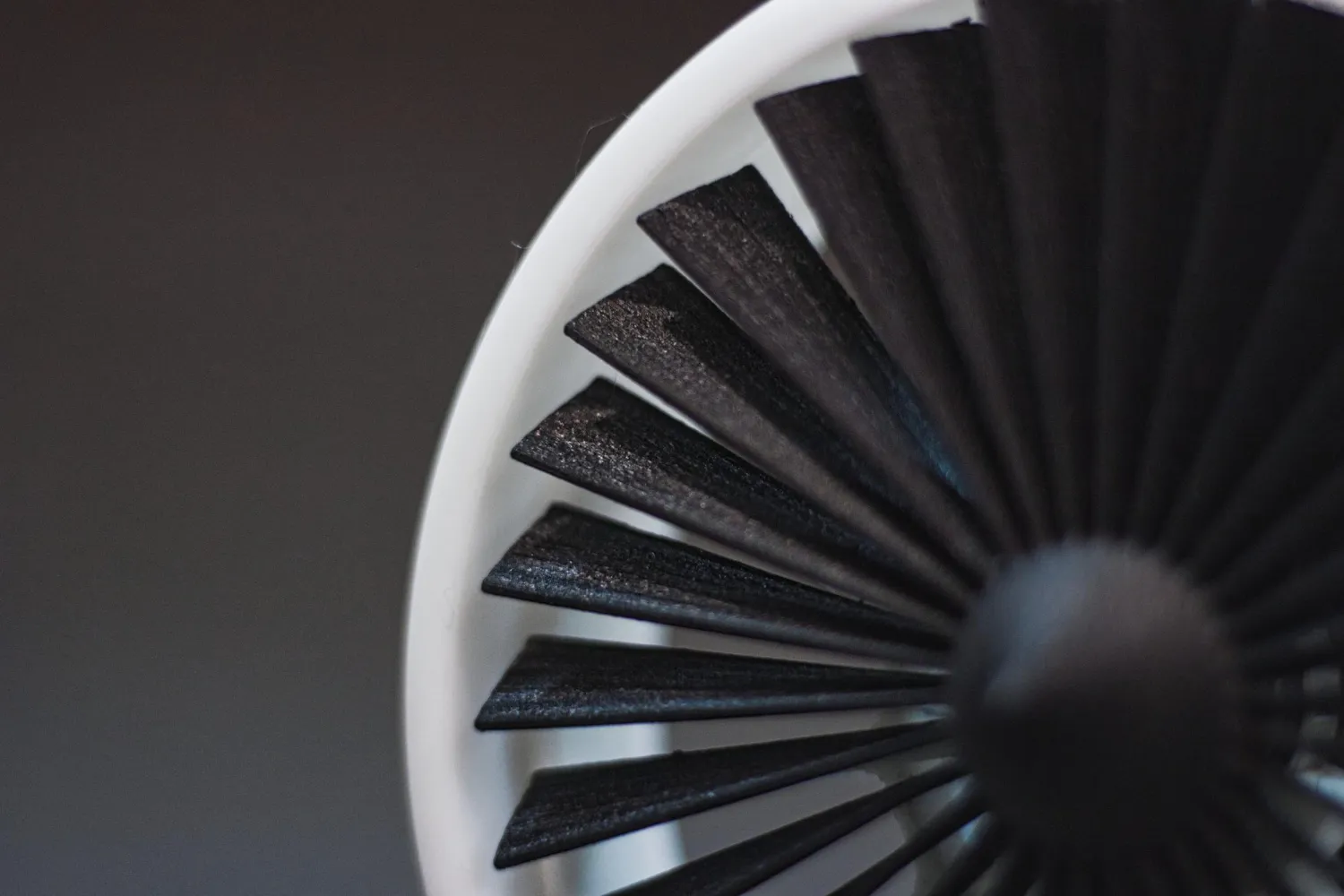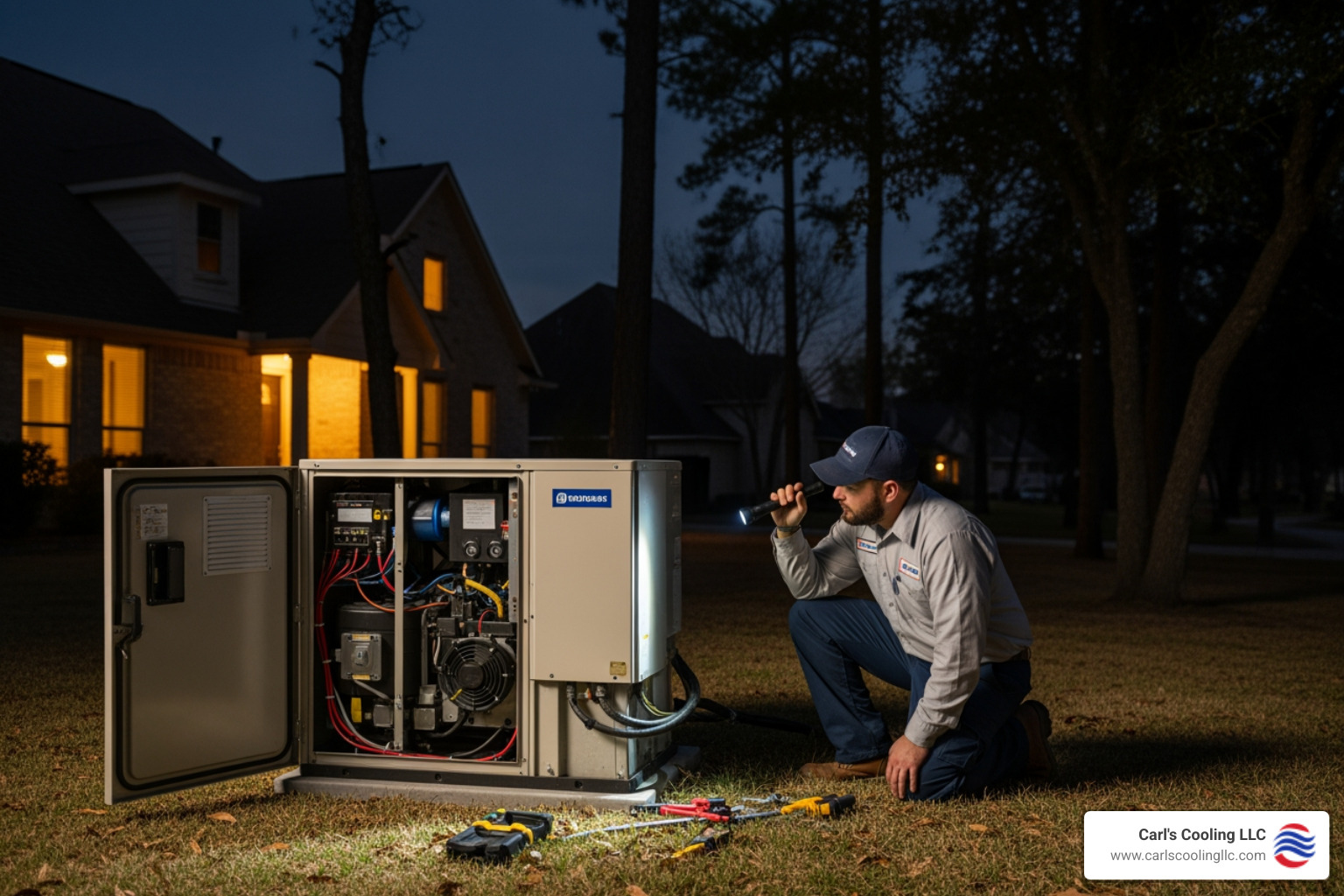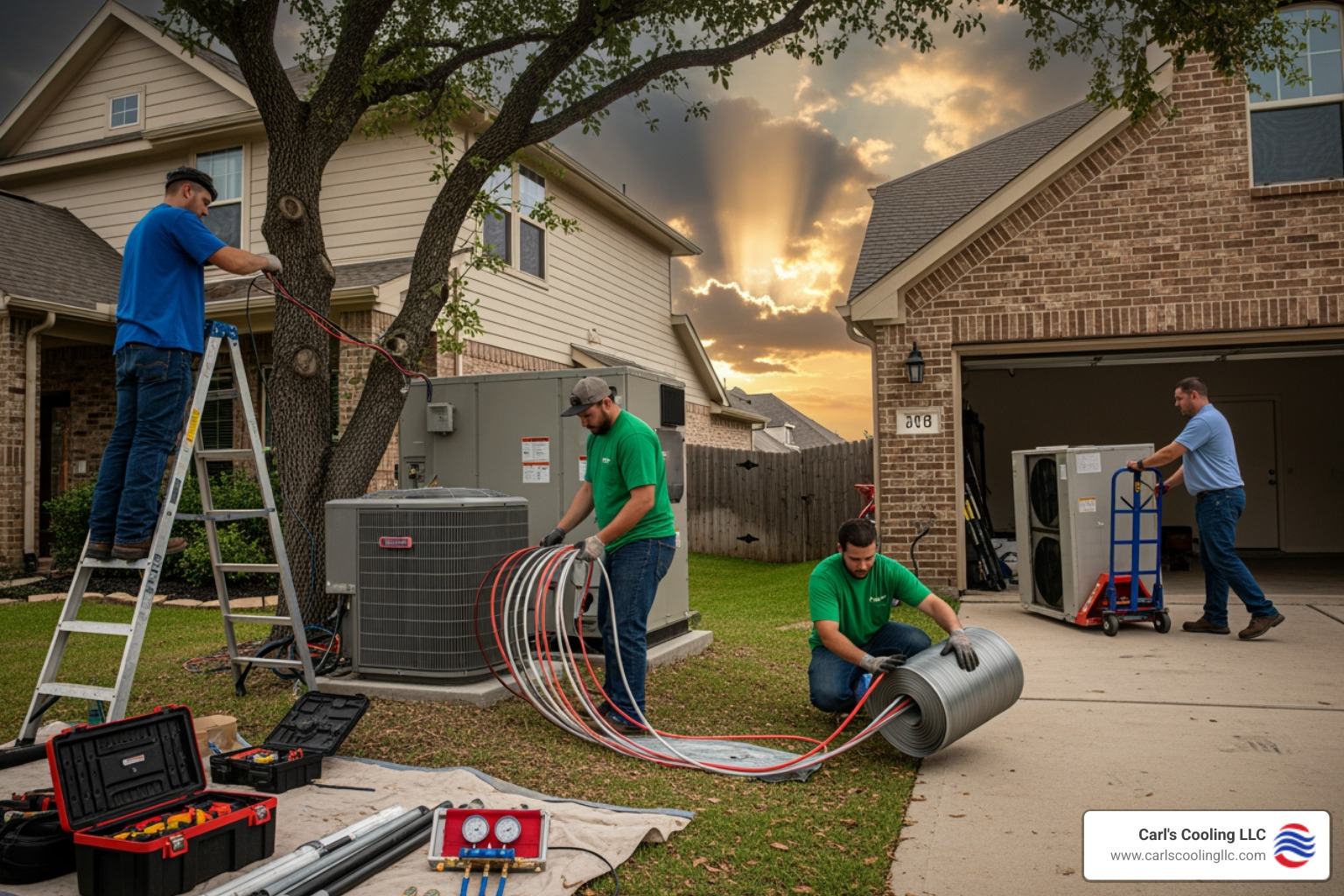Summer temperatures in Willis can push your AC system to its limits. When it’s working right, you probably don’t give the air flow a second thought. But when your AC starts acting up—blowing warm air, making odd noises, or failing to kick on—it becomes clear just how much you rely on that constant, cool breeze. A common reason air conditioners stop working properly is a failing fan motor. This part moves air through the system, so when it weakens, cooling becomes inefficient or nonexistent.
Catching fan motor problems early can help prevent more expensive damage and loss of comfort. If the motor fails completely, your system may overheat or shut down altogether when you need it most. That’s why it’s important to understand the early warning signs. Recognizing symptoms of a failing fan motor before full breakdown can keep your home comfortable and your AC system running longer. Here’s what to look for.
Common Signs Of A Failing AC Fan Motor
When a fan motor begins to wear out, it doesn’t usually stop all at once. More often, there are warning signs that appear in how the system runs or sounds. These symptoms can vary depending on how the motor is failing, but here are the most common signs something’s going wrong:
1. Strange noises: A working fan motor should operate quietly. If you hear grinding, rattling, or a humming sound when the AC runs, the fan motor bearings may be worn or the motor itself might be struggling. The sound often changes as the system cycles on and off.
2. Weak airflow: If the air from your vents feels weak or inconsistent, it could be due to the fan not spinning fast enough to circulate air. Poor airflow can also lead to hot and cold spots throughout the home.
3. The fan doesn’t start: A noticeable sign of trouble is when the outdoor unit turns on, but the fan doesn’t spin. You may hear the compressor running, but no air is being pushed. This could indicate a stuck or failed fan motor.
4. Overheating: If the unit causes the circuit breaker to trip more than once or gets unusually hot after short use, there's a good chance the fan motor is overheating due to internal wear, dirt buildup, or electrical faults.
5. Unusual odors: Burning or electrical smells when the system is running often mean the motor is overheating or its wires are damaged. Don’t ignore this. Persistent odors can mean the motor is close to failure.
One common example is when a homeowner notices the AC unit outside is running, but it’s very quiet—and there’s no cool air inside. The fan may be stuck, running slowly, or not turning at all. The unit might eventually shut itself off to avoid damage. In cases like that, replacing or repairing the fan motor is not something that should wait.
Spotting these signs early can reduce the chance of unexpected AC failure during peak temperatures in Willis. It’s always better to get the issue checked before it leaves you without cooling on a hot day. The next step is understanding what's behind the problem in the first place.
Main Causes Behind AC Fan Motor Issues
Understanding why a fan motor fails can help you see the value of regular service and care. Like many mechanical components, AC fan motors wear down over time or stop working due to outside problems that could have been addressed earlier. These are the most common causes:
1. Normal wear and tear: AC fan motors are built to last several years, but daily use—especially during long, hot summers—adds up. The more hours the motor runs, the more likely its internal parts, such as bearings or windings, wear down.
2. Lack of regular maintenance: Dirt, dust, and debris can collect on the fan blades, restrict airflow, or put strain on the motor. If the system isn’t cleaned and inspected often, this buildup can lead to overheating or breakdown.
3. Electrical problems: A bad capacitor, damaged control board, or faulty wiring can stop the motor from turning on or keep it from running at the right speed. Electrical issues often go unnoticed until the motor stops working properly.
4. Dirt and debris in the fan area: Branches, leaves, or thick layers of dust can block the fan from turning or increase the motor’s workload. Over time, any kind of blockage leads to stress on the components.
5. Age of the unit: Units over 10 to 15 years old are more likely to have failing fan motors. As internal parts age, efficiency drops, and the motor may turn slower, overheat, or stop altogether.
Fan motor issues are disruptive, but many of them don’t happen overnight. Paying attention to how your system behaves can help you stay ahead of these problems before they impact your comfort. A failing motor might just start with a humming noise or a delay in air blowing through the vents. If something seems off, it’s worth having it checked out right away. This not only helps avoid bigger system failures but also protects the other parts inside the AC unit from further damage.
Why Timely Repairs Matter for AC Fan Motor Issues
Waiting too long to address a failing AC fan motor can lead to much larger problems, especially during hot summer days in Willis. What starts as a slower-than-usual fan can quickly turn into a complete breakdown that shuts down your entire air conditioning system. That means no relief from the heat when you need it most.
The fan motor plays a key role in how your system circulates cool air. If it's weak or shutting off mid-cycle, your system won't be able to maintain the right indoor temperature. You may notice the thermostat never quite reaches the number you've set, causing the unit to run longer and work harder than it should. This can drive up your monthly power bill and increase wear on other parts like the compressor.
By handling fan motor problems early, you limit the stress on the rest of the AC system. A motor that's stuck or dragging can overheat and lead to component failure beyond just one part. Instead of replacing a single motor, you might end up needing a new compressor, more electrical parts, or larger repairs that could’ve been avoided. Over time, the costs of delay often outweigh the cost of a faster fix.
Timely repairs also allow the system to stay energy efficient. A faulty motor throws off balance in how the unit delivers airflow throughout your home. This leads to inconsistent cooling from room to room and forces the system to cycle on and off more frequently. That kind of strain can shorten the lifespan of your system by years if left unaddressed.
How Our Professionals Handle AC Fan Motor Repairs
It's tough to know on your own what’s causing your AC to lag. That’s why calling our professionals for a full inspection makes all the difference. What looks like a worn-out motor might actually be a deeper issue with the electrical components, the control board, or the capacitor. It's not always possible to pinpoint that by just listening to the sound or feeling the airflow.
Our technicians start the service by running a complete diagnostic on your system. This allows them to test how much power is reaching the motor, how smoothly it’s running, and whether nearby components are in good shape. They also check for signs of overheating, worn bearings, or any part that has already suffered damage from being overworked.
Once the problem is identified, our technicians can move forward with the right fix. That might mean replacing the faulty motor, clearing away debris, or correcting faulty wiring that’s limiting motor performance. Each solution is matched to the specific problem to reduce further complications or unexpected breakdowns.
Here’s what professional service usually includes when dealing with a fan motor issue:
- A full visual and operational check of the fan motor
- Airflow measurement to confirm proper circulation
- Assessment of the motor’s electrical draw and temperature range
- Tightening and inspecting all surrounding connections
- Replacement or repair of any failed motor or capacitor
- Cleaning of debris around both indoor and outdoor components
Once repairs are complete, the system is retested to confirm it's running correctly under standard load. This step ensures that air is moving properly, the motor isn’t overheating, and your AC will hold up during continued summer use in Willis.
Keeping Your AC Working Through Willis Summers
Dealing with AC problems during a heatwave in Willis is frustrating, especially when the issue could have been caught earlier. A failing fan motor disrupts more than just airflow. It affects your energy bills, the comfort of your home, and the reliability of your system. The longer the motor struggles, the more likely it is to affect other system components.
Recognizing warning signs like weak airflow, strange noises, or an overheating unit is half the battle. Getting the right help before those problems grow into something bigger is the key to staying cool and avoiding emergency calls in the middle of summer.
The hotter it gets, the harder your AC has to work. If that strain is paired with a failing fan motor, you could be left without cooling when you need it most. Staying comfortable during a Willis summer starts with watching for early symptoms and scheduling service when anything seems off. Reliable cooling requires a system that not only runs, but runs correctly.
If you notice your AC struggling or the fan motor showing signs of wear in Willis, our professionals are ready to help with AC repair in Willis that targets the root of the problem and restores reliable cooling. Trust Carl's Quality Cooling and Heating LLC to manage the repair with precision and care, ensuring your system runs efficiently when it matters most. For a quick estimate or to book a service visit, please contact us today.






